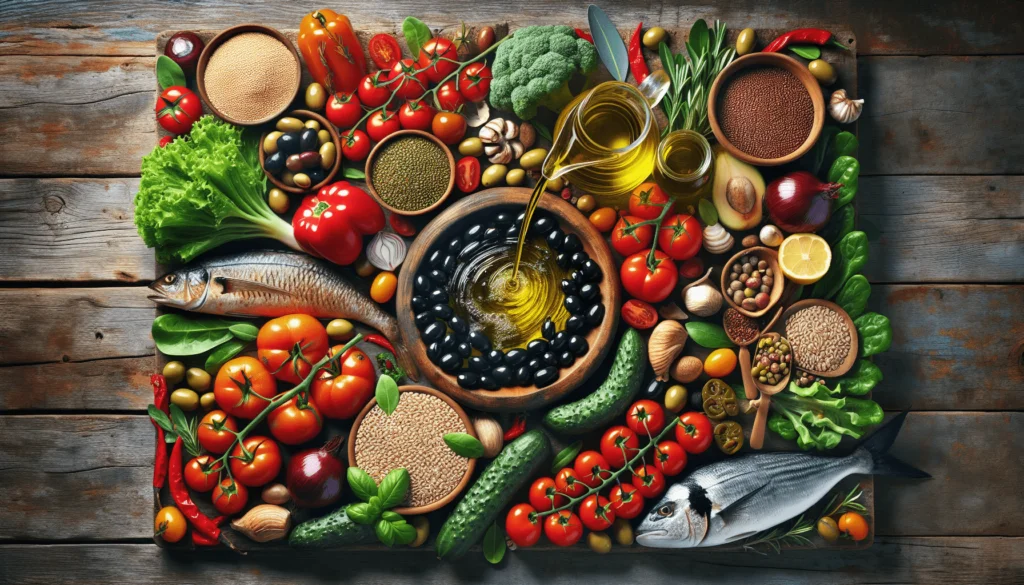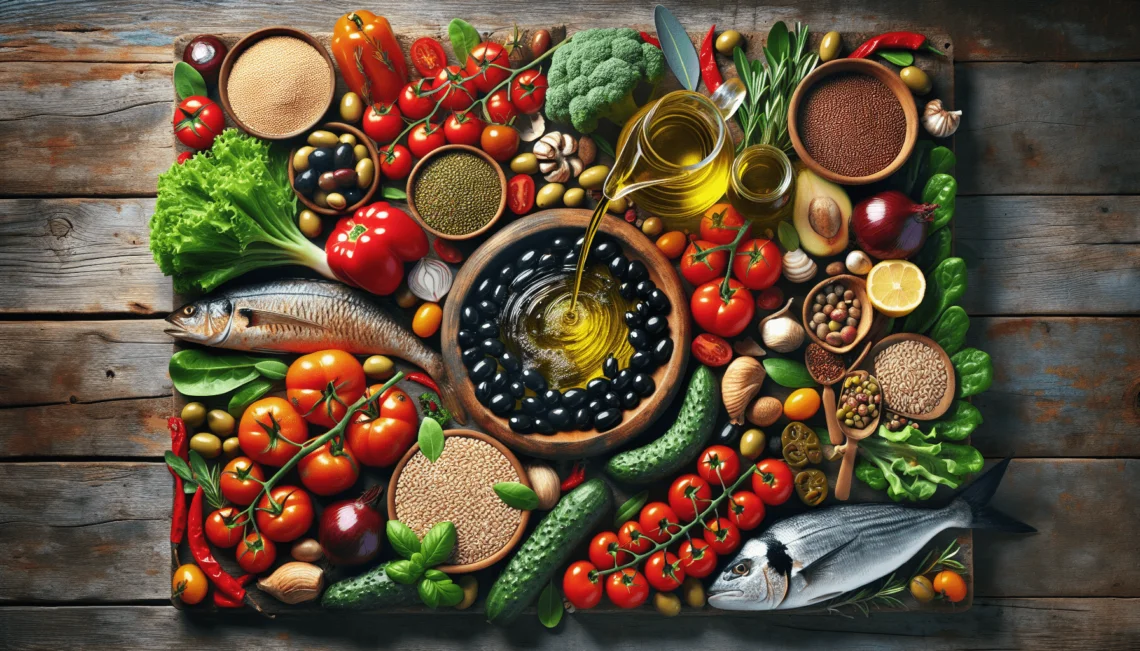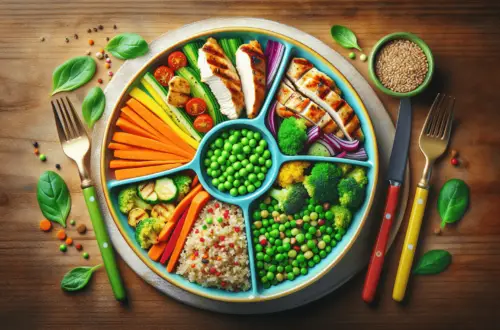Embarking on a journey towards a healthier lifestyle with the Mediterranean diet is both exciting and rewarding. In this article, “How Do I Start A Mediterranean Diet And What Foods Are Allowed On A Mediterranean Diet?” you’ll discover the essential steps to kick-start your new eating habits and learn about the delicious, nutrient-rich foods that form the cornerstone of this world-renowned diet. Whether you’re looking to boost your overall well-being or simply try something new, this straightforward guide will help you make the transition smoothly and enjoyably. Have you ever found yourself wondering how to give your diet a healthy makeover but felt overwhelmed by the sheer number of options out there? Don’t worry; you’re not alone! Many people find the Mediterranean diet appealing because it’s not just a diet but a lifestyle change. Let’s dive into what makes this diet so special, and how you can get started with it.
What is the Mediterranean Diet?
The Mediterranean diet is inspired by the traditional eating habits of countries bordering the Mediterranean Sea, like Greece, Italy, and Spain. It’s celebrated for its delicious, wholesome foods and its variety of health benefits, which include reducing the risk of heart disease, improving brain function, and increasing longevity.
Why is the Mediterranean Diet Popular?
Perhaps one of the reasons the Mediterranean diet has gained such popularity is because it’s not about strict rules or deprivation. Instead, it emphasizes enjoying your meals with family and friends, which makes sticking to it feel less like a chore and more like a joy.
Benefits of the Mediterranean Diet
Embarking on the Mediterranean diet can offer you a myriad of health benefits. Let’s take a closer look at what you could gain:
Heart Health
The diet is rich in healthy fats from sources like olive oil and fatty fish, which are known to support cardiovascular health. Components like omega-3 fatty acids help in reducing inflammation and maintaining heart rhythm.
Brain Health
Studies have shown that this way of eating can also boost brain health and decrease the risk of Alzheimer’s disease. Foods rich in antioxidants, such as berries, nuts, and leafy greens, work wonders for cognitive function.
Weight Management
The Mediterranean diet encourages whole foods that are high in fiber and low in unhealthy fats, making it a natural way to manage your weight without feeling deprived.

How Do I Start a Mediterranean Diet?
Starting a Mediterranean diet can be a seamless transition if you go about it the right way. Let’s break it down into actionable steps for you.
Step 1: Replace Unhealthy Fats with Healthy Fats
Start by replacing butter, margarine, and other unhealthy fats with healthy alternatives like extra virgin olive oil. Olive oil is a staple of the Mediterranean diet and is packed with monounsaturated fats.
Step 2: Eat More Fruits and Vegetables
Aim to fill half your plate with fruits and vegetables at every meal. These foods are high in essential nutrients and antioxidants, helping you feel full and satisfied while nourishing your body.
Step 3: Choose Whole Grains
Swap out refined grains for whole grains like quinoa, barley, oats, and whole wheat. Whole grains have more nutrients and fiber, keeping you full longer and aiding in digestion.
Step 4: Opt for Lean Proteins
Incorporate more lean proteins into your diet, such as fish, chicken, and legumes. These foods are lower in unhealthy fats and rich in essential nutrients.
Step 5: Cut Back on Red Meat
Red meat is something you’d want to consume sparingly. When you do choose red meat, opt for leaner cuts and aim to limit your intake to just a few times a month.
Step 6: Enjoy Dairy in Moderation
Dairy products like Greek yogurt and small amounts of cheese can be part of your diet. However, they’re best enjoyed in moderation.
Step 7: Spice it Up
Use herbs and spices like oregano, basil, and garlic instead of salt to flavor your food. This not only enhances the taste but also provides additional health benefits.
What Foods Are Allowed on a Mediterranean Diet?
The great thing about the Mediterranean diet is its flexibility and variety, which ensures you’ll never get bored. Here’s a detailed breakdown for you.
Fruits and Vegetables
Fresh fruits and vegetables should be the cornerstone of your meals. Aim for a variety of colors to ensure you’re getting a wide range of nutrients.
| Recommended Fruits | Recommended Vegetables |
|---|---|
| Apples | Leafy greens (spinach, kale) |
| Berries | Tomatoes |
| Citrus fruits | Cucumbers |
| Grapes | Peppers |
| Melons | Zucchini |
Whole Grains
Focus on incorporating whole grains into your diet to ensure you’re getting enough fiber and essential nutrients.
| Whole Grains | Forms |
|---|---|
| Quinoa | Grain, flakes, flour |
| Barley | Hulled, pearl |
| Whole wheat | Bread, pasta, flour |
| Brown rice | Long grain, short grain |
| Oats | Rolled, steel-cut |
Lean Proteins
Protein sources are crucial, and the Mediterranean diet prioritizes lean proteins over red meat.
| Protein Source | Details |
|---|---|
| Fish | Salmon, sardines, mackerel |
| Poultry | Chicken, turkey |
| Legumes | Lentils, chickpeas |
| Nuts and seeds | Almonds, chia seeds |
| Eggs | Whole eggs and yolks |
Dairy
Dairy is consumed, but in moderation. Opt for fermented options for added health benefits.
| Dairy Products | Recommended Choices |
|---|---|
| Yogurt | Greek, plain |
| Cheese | Feta, Parmigiano-Reggiano |
| Milk | Small amounts, preferably full-fat |
Healthy Fats
Healthy fats are a cornerstone of this diet and should be included daily.
| Source of Healthy Fats | Forms |
|---|---|
| Olive oil | Extra virgin |
| Avocado | Whole fruit, oil |
| Nuts | Walnuts, almonds |
| Seeds | Flaxseeds, chia seeds |
| Fatty fish | Salmon, mackerel |
Herbs and Spices
Enhance the flavors of your meals with herbs and spices rather than salt or sugar.
| Herbs and Spices | Uses |
|---|---|
| Basil | Salads, pasta dishes |
| Oregano | Marinades, sauces |
| Garlic | Almost any dish |
| Rosemary | Roasted vegetables, meats |
| Thyme | Soups, roasted dishes |

Mediterranean Diet Meal Ideas
Now that you know what foods are allowed, here are some simple meal ideas to get you started.
Breakfast
- Greek yogurt topped with fresh berries, a handful of nuts, and a drizzle of honey.
- Whole grain toast with avocado, a poached egg, and a sprinkle of chives.
Lunch
- Quinoa salad with chickpeas, cherry tomatoes, cucumber, feta cheese, and a lemon-olive oil dressing.
- Grilled chicken wrap with whole grain tortilla, fresh veggies, and tzatziki sauce.
Dinner
- Baked salmon with a side of roasted vegetables and a quinoa pilaf.
- Stuffed bell peppers with a mixture of brown rice, minced turkey, and spices.
Snacks
- A handful of almonds or walnuts.
- Hummus with carrot and cucumber sticks.
- A piece of fruit like an apple or a handful of grapes.
Tips for Sticking to the Mediterranean Diet
Transitioning to a Mediterranean diet can be exciting, but sticking to it is where the real challenge lies. Here are some tips to help you stay on track:
Plan Ahead
Planning your meals in advance can save you from unhealthy last-minute choices. Make a weekly meal plan to ensure you have all the ingredients you need.
Shop Smart
Fill your shopping cart with whole, fresh foods. Avoid processed foods and stick to the perimeter of the grocery store where fresh produce, meats, and dairy are usually located.
Dine Out Wisely
When eating out, choose dishes that align with the Mediterranean diet principles. Opt for grilled fish, salads, and dishes cooked with olive oil.
Involve Family and Friends
Meal times are an essential part of the Mediterranean lifestyle. Cooking and eating together can make the diet more enjoyable and easier to stick to.
Stay Hydrated
Drink plenty of water throughout the day. You can also enjoy moderate amounts of red wine, typically with meals.
Common Myths About the Mediterranean Diet
As with any popular diet, the Mediterranean diet is surrounded by myths that can be confusing.
Myth 1: It’s All About Italian and Greek Food
While Italian and Greek cuisines are a part of it, the Mediterranean diet includes a diverse range of foods from many countries around the Mediterranean Sea.
Myth 2: Carbs are Off-Limits
The Mediterranean diet doesn’t eliminate carbs. Instead, it emphasizes whole grains over refined grains.
Myth 3: It’s Expensive
While some ingredients like olive oil and fish can be pricier, many staples like beans, lentils, whole grains, and vegetables are very budget-friendly.
Conclusion
Embarking on a Mediterranean diet might just be one of the best decisions you can make for your health. It focuses not only on what you eat but also on how you eat, encouraging meals enjoyed with loved ones and foods that truly nourish your body. So why not give it a try? With a variety of delicious foods to choose from and numerous health benefits, the Mediterranean diet makes healthy eating both simple and enjoyable.
If you’ve got any more questions or need additional tips on starting a Mediterranean diet, feel free to reach out. Happy eating!





